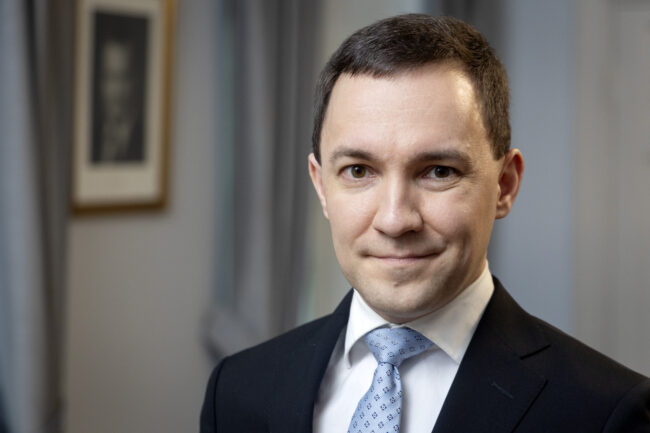The Helsinki Region Chamber of Commerce, the cities of Helsinki, Espoo, and Vantaa, and the Helsinki-Uusimaa Regional Council, want urban policy on the European Union’s agenda.
They also propose tighter integration of Uusimaa’s and Finland’s transport infrastructure with the rest of the EU and a doubling of R&D funding for the Uusimaa region.
The joint EU election themes of the Helsinki Region Chamber of Commerce, the cities of Helsinki, Espoo, and Vantaa, and the Uusimaa Regional Council are:
The European Union needs vibrant cities – Urban policy in the EU must be strengthened
80% of Europeans will live in cities by 2050.
Growing cities should be given the opportunity to seek more direct EU funding, as the prerequisites for competitiveness, new jobs, and green transition solutions are created in the cities. The funding share received by regions and cities from EU’s structural funds should be assessed through productivity. For example, only a fraction of the European Regional Development Fund’s financing has been allocated to the European Urban Initiative, which supports cities’ capabilities to develop a sustainable urban environment. Cities must be supported in promoting sustainable development and reducing inequality.
Strengthening and connecting Uusimaa’s and thereby all of Finland’s transport infrastructure to the rest of the EU
In other Nordic countries, the state invests significantly more than in Finland in the transport infrastructure of their own capital regions. The scarcity of state investments weakens the competitiveness of the Helsinki region compared to peer cities.
The state must increase its funding in infrastructure projects in the Helsinki region that have national significance. The state should also make better use of EU funding in this respect. The state must seek EU CEF funding (Connecting Europe Facility) more actively to promote the competitiveness of the capital region. National co-funding must also be secured.
Finland is an European border region, and Russia’s war of aggression against Ukraine has further increased Finland’s remoteness. European border regions must be supported in the situation that has significantly changed. The implementation of the TEN-T regulation and CEF funding for the European-wide transport network must take Finland’s long Eastern border into account by improving transport connections both to the west and south. In the The planning of the Tallinn tunnel must take into account not only economic assessments, but also security of supply, the functioning of the single market and the geopolitical significance.
Uusimaa’s R&D funding must be doubled
Uusimaa’s goal is that by 2030, research and development spending will be five percent of the region’s gross domestic product. This requires doubling the EU funding received by the region. National co-funding must be ensured, a new EU project preparation support form must be created, and EU yields must be increased across all sectors and various funding instruments.
Let’s talk about EU! Sign up for the MetropoliAreena event
Metropolitan policy in the European Union will be discussed at the MetropoliAreena event on May 22 from 15:00 to 17:00 at Pasila Tripla. The event will be streamed. Ten EU election candidates in the panel, including MEPs Eero Heinäluoma and Henna Virkkunen, Members of Parliament Eva Biaudet, Maria Guzenina, Atte Harjanne, Maria Ohisalo, Aura Salla, Jussi Saramo, as well as city councilor Mika Niikko and CEO Petri Roininen. Sign up here: MetropoliAreena: EU-vaalit 22.5.2024 – KauppakamariKauppa
This article was translated by AI and revised by a person. The original Finnish Article can be read here



